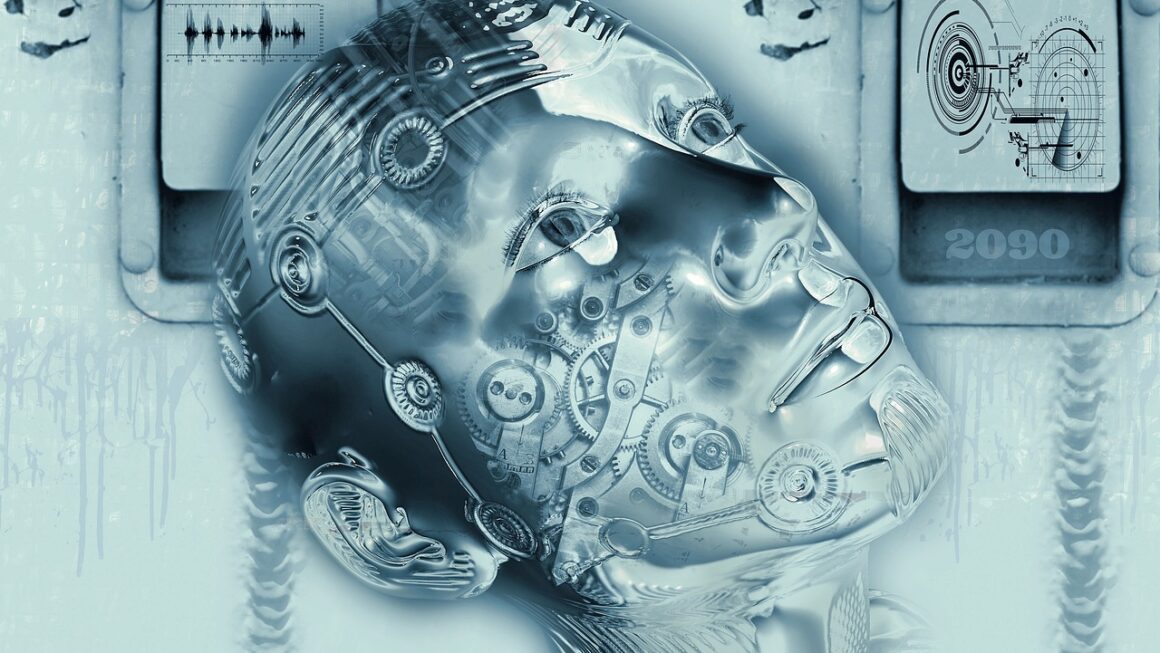The world of software development is constantly evolving, demanding faster turnaround times, increased efficiency, and innovative solutions. Enter AI coding tools, game-changers that are reshaping how developers write, test, and maintain code. These tools aren’t about replacing programmers, but rather about augmenting their abilities, automating repetitive tasks, and providing intelligent assistance to accelerate the development lifecycle. This blog post delves into the transformative power of AI coding tools, exploring their capabilities, benefits, and implications for the future of software development.
What are AI Coding Tools?
AI coding tools leverage artificial intelligence, particularly machine learning, to assist developers in various coding-related tasks. They analyze vast amounts of code, identify patterns, and learn from best practices to offer intelligent suggestions, automate mundane tasks, and improve code quality. These tools come in various forms, ranging from code completion engines to automated debugging assistants.
Core Functionalities of AI Coding Tools
- Code Completion: Predicts and suggests code snippets as you type, significantly reducing typing effort and minimizing errors. Tools like GitHub Copilot excel in this area.
- Code Generation: Generates entire code blocks or functions based on natural language descriptions or user specifications. This can drastically accelerate the development process for common tasks.
- Code Analysis: Scans code for potential bugs, security vulnerabilities, and performance bottlenecks, providing insights for improvement. Examples include SonarQube and various static analysis tools enhanced with AI.
- Automated Testing: Generates test cases, executes tests, and identifies potential issues automatically, improving software reliability and reducing testing time.
- Code Refactoring: Suggests and applies code improvements to enhance readability, maintainability, and performance. AI can identify opportunities for optimization that might be missed by human developers.
- Natural Language to Code: Translates natural language descriptions into executable code, enabling non-programmers or less experienced developers to contribute to projects.
Examples of Popular AI Coding Tools
- GitHub Copilot: An AI pair programmer that offers code suggestions and completes lines of code within your IDE. It learns from the context of your code and provides relevant and accurate suggestions.
- Tabnine: Another AI-powered code completion tool that supports a wide range of programming languages and IDEs. It learns from your coding style and preferences to provide personalized suggestions.
- Codiga: A coding assistant that helps enforce coding standards, detect bugs, and identify security vulnerabilities.
- MutableAI: A tool focused on code generation and editing, helping you create and modify code with AI assistance.
- Amazon CodeWhisperer: An AI coding companion that generates code recommendations in real-time based on your comments and existing code.
Benefits of Using AI Coding Tools
Integrating AI coding tools into your development workflow can yield significant benefits, impacting productivity, code quality, and overall project success.
Increased Developer Productivity
- Faster Coding: AI-powered code completion and generation significantly reduce typing time and boilerplate code, allowing developers to focus on more complex tasks.
- Reduced Debugging Time: Automated code analysis and bug detection help identify and fix issues early in the development cycle, minimizing debugging efforts.
- Streamlined Refactoring: AI-assisted refactoring simplifies the process of improving code quality and maintainability, saving time and effort.
- Automated Testing: Automated test generation and execution reduce the manual effort required for testing, ensuring higher code quality.
Improved Code Quality
- Reduced Errors: AI-powered code analysis can identify potential bugs and vulnerabilities that might be missed by human developers, leading to more robust and reliable code.
- Consistent Code Style: AI tools can enforce coding standards and best practices, ensuring consistency and readability across the codebase.
- Enhanced Security: AI-driven security analysis can identify potential vulnerabilities and recommend remediation steps, improving the overall security posture of the application.
Reduced Development Costs
- Faster Time to Market: Increased productivity and reduced errors translate to faster development cycles and quicker time to market.
- Lower Maintenance Costs: Higher code quality and reduced bugs lead to lower maintenance costs over the long term.
- Reduced Training Costs: AI tools can help onboard new developers more quickly by providing guidance and best practices.
How to Effectively Integrate AI Coding Tools
Successfully integrating AI coding tools into your development process requires careful planning and consideration. It’s not simply about installing a plugin; it’s about adopting a new way of working.
Choose the Right Tools for Your Needs
- Identify your Pain Points: Determine the areas where AI coding tools can provide the most significant benefits, such as code completion, debugging, or testing.
- Evaluate Different Options: Research and compare different AI coding tools based on their features, pricing, and compatibility with your existing development environment.
- Consider Your Team’s Skillset: Choose tools that are easy to learn and use, and that align with your team’s existing skillset.
- Try Before You Buy: Take advantage of free trials or demos to evaluate the tools and ensure they meet your specific needs.
Provide Adequate Training and Support
- Train Your Team: Provide comprehensive training on how to use the AI coding tools effectively.
- Establish Best Practices: Define clear guidelines and best practices for using the tools to ensure consistency and maximize benefits.
- Offer Ongoing Support: Provide ongoing support and assistance to help developers overcome challenges and make the most of the tools.
Monitor and Measure Results
- Track Key Metrics: Monitor key metrics such as development time, bug count, and code quality to measure the impact of the AI coding tools.
- Gather Feedback: Collect feedback from developers to identify areas for improvement and ensure the tools are meeting their needs.
- Iterate and Optimize: Continuously iterate and optimize your use of the tools based on data and feedback to maximize their effectiveness.
The Future of AI in Coding
AI is rapidly evolving, and its role in coding is only going to expand. We can expect to see more sophisticated AI coding tools that are capable of handling increasingly complex tasks.
Emerging Trends
- AI-Driven Code Generation: More advanced AI models will be able to generate entire applications or complex features based on natural language descriptions.
- Automated Code Repair: AI will be able to automatically identify and fix bugs in code, further reducing debugging time and improving code quality.
- AI-Powered Collaboration: AI will facilitate collaboration between developers by providing intelligent suggestions and insights based on the entire project context.
- Low-Code/No-Code Platforms Enhanced by AI: AI will further simplify low-code/no-code development, allowing non-programmers to create sophisticated applications.
- Personalized AI Coding Assistants: AI tools will become more personalized, adapting to individual coding styles and preferences to provide more relevant and effective assistance.
- AI for Cybersecurity: Automated vulnerability detection and remediation powered by AI will become increasingly crucial for ensuring software security.
Potential Challenges
- Bias in AI Models: AI models can be biased based on the data they are trained on, leading to unfair or discriminatory outcomes.
- Dependence on AI: Over-reliance on AI coding tools could lead to a decline in fundamental programming skills.
- Security Risks: AI models themselves can be vulnerable to attacks, potentially compromising the security of the code they generate.
- Ethical Concerns: The use of AI in coding raises ethical concerns about job displacement and the potential for misuse of the technology.
Conclusion
AI coding tools are revolutionizing software development, offering significant benefits in terms of productivity, code quality, and development costs. By understanding the capabilities of these tools, effectively integrating them into your workflow, and addressing potential challenges, you can unlock their full potential and stay ahead in the ever-evolving world of software development. The future of coding is undoubtedly intertwined with AI, and embracing this technology will be crucial for success in the years to come.




